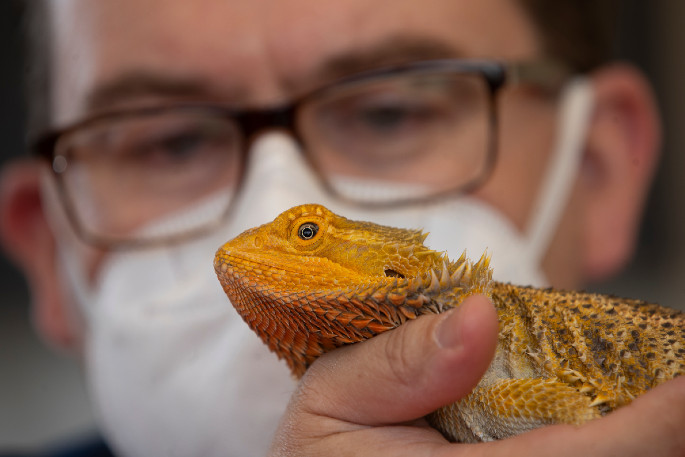Dr Martin Earles is turning his veterinarian expertise to new, exciting and exotic challenges by caring for Tauranga's more unusual pets and birds.
On Tuesday and Fridays, birds, rabbits, reptiles and rodents are able to pay him a visit for exotic and avian consultations and surgery, and to receive some much-appreciated expert care.
The unusual pets are different from what most vets would tend to deal with.
'Over the last few years, I've put some time into studying and finding out more about them,” says Martin. 'I've always been interested in slightly different sorts of pets, and we've had birds, guinea pigs and rabbits when I was younger.
'We started to keep them at home, so it was natural to want to learn as much as you can to look after them.”
Martin is a Tauranga-raised veterinarian and Massey University graduate. He started in a small animal practice in Auckland, before moving back to Tauranga where he has worked since 2000.
He started developing a special interest in avian and exotic pet medicine and surgery since 2010.
This interest grew into something more, involving courses and study; and in 2019 he passed exams to become a member of the Australian and New Zealand College of Veterinary Scientists in the subject of Medicine and Surgery of Unusual Pets.
He is a member of the Association of Reptile and Amphibian Veterinarians, the Association of Exotic Mammal Veterinarians, and the Association of Avian Veterinarians – Australasian Committee.
Now with letters after his name, he's offering a place and opportunity for pet owners to be referred from other clinics as well as those who come direct to see him at The Referral Centre in Greerton.
The pets he sees cover a wide variety of species. There are giant Flemish rabbits among the hugely popular rabbits, and rodents such as guinea pigs, chinchillas, rats and mice. There are also reptiles such as lizards, turtles and tortoises; and amphibians, ornamental fish and bird species which include aviary birds, backyard poultry and pigeons.
At home, he has his own guinea pigs, a rabbit, some tropical fish and two dogs.
'There's quite a lot of rabbits out there, and some live to a similar age to a cat. There's also guinea pigs, and a few chinchillas around – little soft cuddly furry creatives, very cute.”
Chinchillas seem to break their legs easier than other pets.
'They're little rodents from South America, with a long tail and long legs. Very soft with a plush coat. 'We had one little chinchilla, which was only about six weeks old, and it broke its back leg. The bone was like cardboard, very soft. Unfortunately, we had to amputate, and then it got bigger and about a year later broke its other back leg, so we put a pin and some wire in it and it healed up.
'He's like a cat with nine lives. Chinchillas are quite active and will climb, and they've got long skinny legs.”
Dragons, turtles and tortoises are also popular. 'They all have their own special requirements for looking after them and feeding them. So you help to try and prevent a lot of problems that may arise.”
Just like humans, pets can have respiratory infections and digestive problems, says Martin.
'They can hide things and look fine, and then one day they can look really sick all of a sudden, and need a lot of extra care and fluids.”
Martin's avian and exotic pet service is open on Tuesdays and Thursdays at The Referral Centre, which is located at the Bay After Hours Veterinary Hospital, 1450 Cameron Rd, Greerton.

